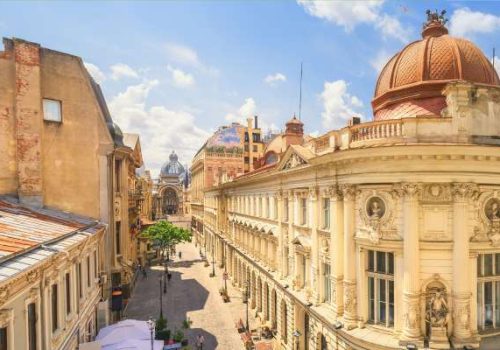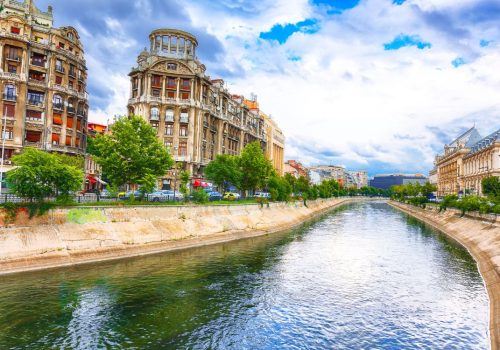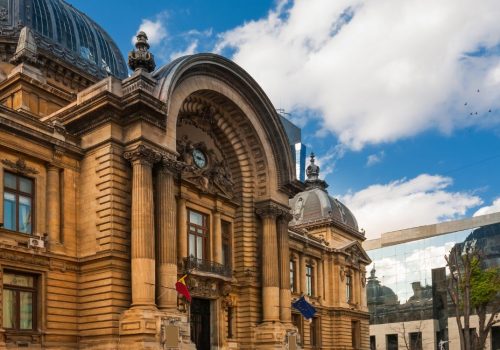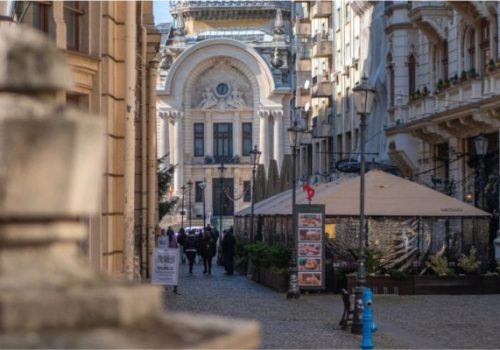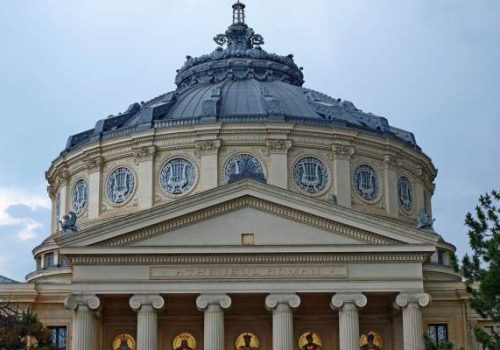Living and Working in Romania
Information & guidance about seasonal jobs in Romania
Romania, a country of stunning natural beauty and rich cultural heritage, is quickly gaining recognition as an attractive destination for expats. With its affordable cost of living, growing economy, and welcoming communities, Romania offers a unique blend of opportunities and lifestyle. Whether you’re considering a move for work, study, or adventure, this guide provides a detailed look at living and working in Romania, from job prospects and salaries to housing and everyday life.
Seasonal jobs in Romania
- Game Presenter
- Romania
- Adventure jobs
- Romania
Working in Romania
Working Conditions in Romania
Romania offers a structured and supportive work environment, aligned with European Union labor standards. A standard workweek consists of 40 hours, typically from 9 am to 5 pm, Monday through Friday. Employees are entitled to 21 days of paid leave annually, with additional time off for public holidays, of which there are 15 each year.
Labor laws in Romania protect workers, ensuring fair wages, job security, and reasonable working hours. Many companies, especially in sectors like IT and finance, are adopting flexible working hours and hybrid work models, particularly in major cities like Bucharest, Cluj-Napoca, and Timișoara.
The workplace culture emphasizes professionalism, reliability, and collaboration. While English is widely spoken in multinational companies, learning Romanian can enhance your integration and career prospects, especially in roles requiring frequent interaction with local clients or partners.
Job Opportunities in Romania
Romania’s growing economy and strategic location make it a hub for industries such as IT, engineering, finance, manufacturing, healthcare, and education. The country has become a popular destination for outsourcing and shared services, creating a high demand for professionals in business process outsourcing (BPO) and customer service.
The IT sector is particularly strong, with cities like Cluj-Napoca, often referred to as “Romania’s Silicon Valley,” hosting numerous tech start-ups and multinational companies. Opportunities in software development, cybersecurity, and data analysis are abundant.
Romania’s industrial and manufacturing sectors remain significant, with roles in automotive production, textiles, and heavy machinery widely available. Additionally, the finance sector has seen rapid growth, with banks and financial services firms expanding their operations in Bucharest.
For those in education, Romania’s growing number of international schools and universities provides opportunities for teachers and academic professionals. The healthcare sector also needs skilled doctors, nurses, and technicians, particularly in rural areas.
Networking is crucial for job hunting in Romania. Professional platforms like LinkedIn and local job portals such as eJobs.ro and BestJobs.ro are valuable resources for finding employment opportunities.
Salaries in Romania
Salaries in Romania are competitive within Eastern Europe, though they may be lower than in Western European countries. The average monthly gross salary is approximately 5,000 RON (€1,000), though this varies significantly by industry and experience.
- IT professionals and engineers often earn between 10,000 and 15,000 RON (€2,000–€3,000) per month.
- Finance and consulting roles typically pay 8,000 to 12,000 RON (€1,600–€2,400).
- Customer service and administrative positions offer salaries of around 4,000 to 6,000 RON (€800–€1,200).
While salaries may seem modest compared to Western Europe, Romania’s low cost of living allows residents to maintain a comfortable lifestyle.
Income Tax in Romania
Romania has a flat income tax rate of 10%, making it one of the most favorable tax regimes in the European Union. Employees also contribute to social security and healthcare, with deductions totaling around 35% of gross income.
Expats working in Romania must register with the National Tax Agency and obtain a tax identification number. Romania has double taxation treaties with numerous countries, ensuring expats don’t pay taxes on the same income in multiple jurisdictions.
Working Culture in Romania
Romania’s working culture combines traditional values with modern practices. Employers value punctuality, dedication, and teamwork, while workplace hierarchies are respected. However, many younger companies and start-ups foster a more relaxed and informal atmosphere.
Lunch breaks are important in Romanian workplaces, with employees often enjoying hearty local meals at nearby restaurants. Increasingly, businesses in tech and creative industries are adopting flexible hours, remote work options, and casual dress codes.
Networking and relationship-building are integral to professional success in Romania. Developing trust and strong personal connections with colleagues and partners can significantly enhance career prospects.
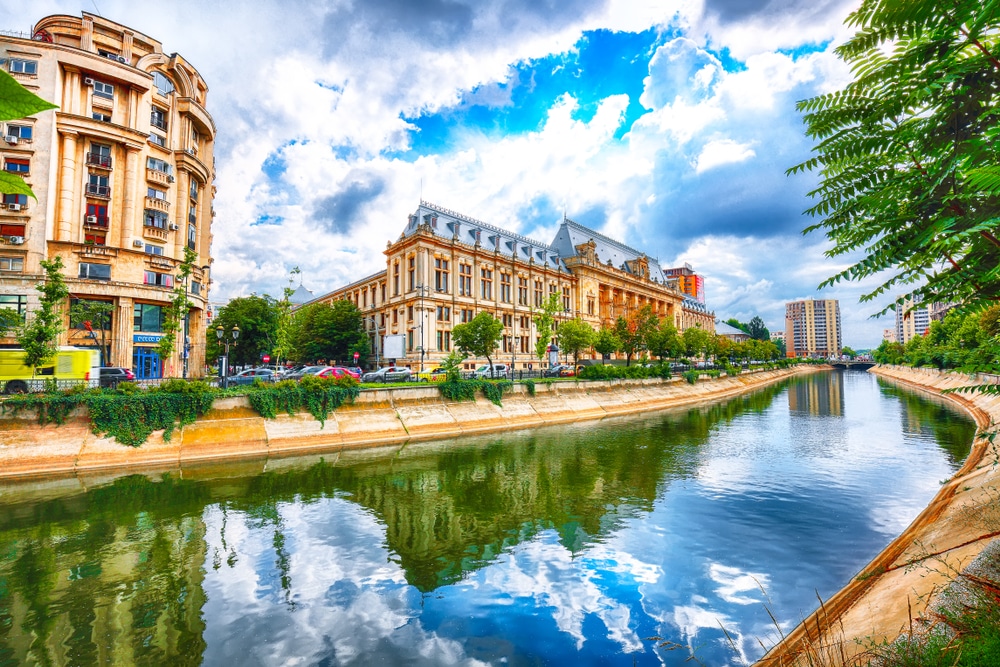
Living in Romania
Benefits of Living and Working in Romania
Romania offers an attractive combination of affordable living, natural beauty, and rich cultural experiences. The country’s low cost of living, compared to other EU nations, makes it an excellent choice for expats seeking a comfortable lifestyle on a budget. Romania is also home to breathtaking landscapes, from the Carpathian Mountains to the Black Sea coast, offering endless opportunities for outdoor enthusiasts.
The country’s location in Eastern Europe makes it a convenient base for exploring neighboring countries such as Hungary, Bulgaria, and Serbia. Additionally, Romania’s growing expat community and welcoming locals make it easy to integrate into the social and cultural fabric of the country.
Accommodation in Romania
Finding accommodation in Romania is relatively straightforward, with options to suit a variety of budgets. A one-bedroom apartment in the city center typically costs between 2,000 and 3,500 RON (€400–€700) per month, while similar apartments in suburban areas cost around 1,500 to 2,500 RON (€300–€500).
Shared apartments are popular among students and young professionals, with monthly costs as low as 1,000 RON (€200) per person. Utilities, including electricity, heating, and water, add an additional 300 to 500 RON (€60–€100) per month.
Expats can find rental properties through platforms like Imobiliare.ro or by working with local real estate agents. Landlords typically require a deposit equal to one or two months’ rent.
Cost of Living in Romania
Romania is one of the most affordable countries in Europe, making it particularly attractive to expats. A single person can live comfortably on a monthly budget of 5,000 to 7,000 RON (€1,000–€1,400), depending on lifestyle. Key expenses include:
- Groceries: Monthly grocery bills range from 600 to 1,000 RON (€120–€200), with affordable prices at supermarkets like Mega Image and Kaufland.
- Dining Out: Eating out is inexpensive, with a meal at a mid-range restaurant costing 40 to 80 RON (€8–€16). Traditional Romanian dishes like sarmale and mămăligă are widely available and highly recommended.
- Public Transport: Romania’s public transport system is affordable, with monthly passes costing around 100 RON (€20) in major cities.
Where to Live in Romania
Romania’s cities each have their own unique character and appeal. Bucharest, the capital, is the economic and cultural heart of the country, offering a bustling lifestyle with ample career opportunities. Cluj-Napoca, often referred to as the country’s IT hub, is ideal for tech professionals and students.
Timișoara and Iași offer a quieter, more relaxed pace of life while still providing modern amenities and job prospects. For those seeking scenic beauty, Brașov and Sibiu are excellent choices, surrounded by the stunning landscapes of the Carpathians.
Public Transport in Romania
Romania’s public transport system is efficient and budget-friendly, with buses, trams, and metro services operating in major cities. A monthly pass costs around 100 RON (€20), providing unlimited access to public transit within the city.
Intercity travel is also affordable, with trains and buses connecting Romania’s cities and towns. Budget airlines operate from Romanian airports, offering low-cost travel to other European destinations.
Eating in Romania: Restaurants and Food Costs
Romania’s culinary scene is rich and diverse, blending influences from Eastern Europe, the Balkans, and the Mediterranean. Traditional dishes such as ciorbă (sour soup), mititei (grilled sausages), and papanași (fried doughnuts) are widely enjoyed.
Dining out is highly affordable, with casual meals costing around 30 to 50 RON (€6–€10). For fine dining experiences, expect to pay 100 to 200 RON (€20–€40) per person. Local markets, like Piața Obor in Bucharest, offer fresh produce, meats, and cheeses at reasonable prices.
Romania’s Nightlife
Romania’s nightlife is lively and diverse, offering something for everyone. In cities like Bucharest and Cluj-Napoca, you’ll find an array of trendy bars, clubs, and live music venues. During the summer, rooftop bars and outdoor terraces become popular hangouts.
Cultural events, such as theater performances, concerts, and festivals, are also integral to Romania’s social scene. Major cities host annual events like the Untold Festival in Cluj-Napoca and the George Enescu Festival in Bucharest, drawing international crowds.
Weather in Romania
Romania experiences a continental climate, with hot summers and cold winters. Summer temperatures range from 25°C to 35°C (77°F to 95°F), while winter temperatures can drop to -5°C to -10°C (23°F to 14°F), particularly in mountainous regions.
Spring and autumn are mild and pleasant, making them the ideal seasons for outdoor activities like hiking, exploring Romania’s historic towns, or visiting its picturesque vineyards.
What Not to Miss in Romania
Romania is a treasure trove of natural and cultural wonders. Bran Castle, famously associated with Dracula, is a must-visit, as are the painted monasteries of Bucovina and the Saxon villages of Transylvania. Outdoor enthusiasts will love the Danube Delta, a UNESCO World Heritage Site and one of Europe’s most biodiverse areas.
Seasonal events like the Sibiu International Theatre Festival and traditional Christmas markets showcase Romania’s rich cultural heritage. For nature lovers, the Carpathian Mountains offer endless opportunities for hiking, skiing, and wildlife spotting.

